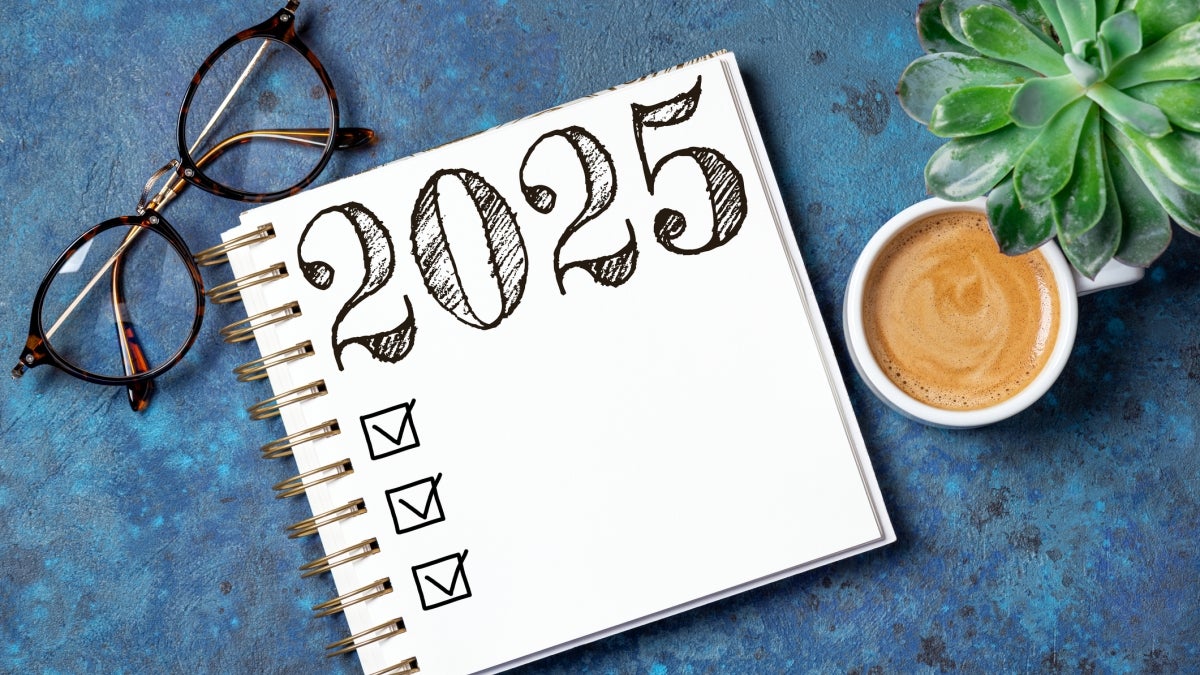ASU professor shares the science behind making successful New Year's resolutions

iStock image
Making New Year’s resolutions is easy. Executing them? Not so much.
But what if we're going about it all wrong? Does real change take more than just making resolutions?
Michelle Shiota thinks so.
It starts with the timing, says the Arizona State University psychology professor. Turns out the start of the new year is actually not the best time to make the break with bad habits.
And resolutions need to be meatier. Shiota says making concrete and measurable action plans are essential to successful transformation.
But there's more.
One of the real keys to change is understanding the obstacles to achieving those specific goals — and most people need look no further than the previous year to identify what those obstacles are.
“It's pretty easy to do because of all the reasons why you didn't reach your goals before,” said Shiota, who researches positive emotions, emotion regulation and behavior change. “All of your ‘yeah buts’ from last year become the barriers, right?”
ASU News sat down with Shiota to learn about some realistic and different approaches to change.
Editor's note: Answers have been edited for length and/or clarity.
Question: Why don’t New Year’s resolutions work? What’s working against them?
Answer: It's natural with any perceived transition, whether it's a real structural one or just a culturally agreed upon one — like the new year — to think of it as a time for change. When we talk about a new year, a new anything, it is an opportunity to make some changes. The challenge with having it be the new year is that … from a behavior change standpoint, it works against us. And here's why.
So much of our behavior, including our health-related behavior or our relationship behavior, is cued by the environment around us. We have this habitual way of going through the world, and changing those habitual ways of doing things is hard.
But when we make structural changes in our life, such as moving, starting a new job, getting married … it is a good time to initiate behavior changes precisely because the things that you're used to got disrupted and you have to make new patterns for your life.
The new year tends not to do that. It's when most of us are on vacation. So when you make these resolutions on New Year's Day, you're doing it at a time when it feels easy to do. And you're not attuned to the difficulties of your day-to-day life. And then you are going right back into the same day-to-day life that you had three weeks earlier.
On one hand (the new year) is a compelling time to make changes because we do mark it psychologically as a fresh start. But nothing has actually changed in our lives.
Q: That makes a lot of sense. So what should people do? What does work?
A: One way is to think about how to phrase your resolution. And the distinction between a resolution and a goal is actually a really valuable one here.
A goal is an end state: I want to have more muscle mass. I want to get more sleep. I want to be a better reader.
Whatever it is, these are goals. They are outcomes. The idea being that if you look six months to a year from now, that's where you are. And the research on motivation indicates that setting clear, specific, measurable goals is conducive to achieving them.
When our goals are vague or unclear, they are not measurable. For example, wanting to be healthier is very, very vague as a goal. Saying I want to sleep eight hours a night, that is a really specific, concrete goal.
I recommend that the resolution not be a goal. Figure out what the goal is. Then set the resolution as a specific action plan that's realistic. For example, I want to be getting eight hours of sleep a night. How am I going to do that tomorrow? Next week? What does that actually look like?
There is no scenario in which a behavior change that reduces the enjoyment of your life is going to work.
Michelle ShiotaASU psychology professor
Q: You mentioned a technique called implementation intentions. What does that mean and how does it contribute to effectively executing resolutions?
A: With the implementation intentions technique, once you have set your goal and specific actions, such as "I'm going to the gym twice a week," what are the reasons why I might not be able to do that?
So you predict the barriers that would interfere with you enacting your plan. For example, I have to work longer than I thought I was going to. Or I'm traveling. That's a big one for me — I'm traveling and I'm going to be away from my gym. So how am I going to work out?
And you basically come up with a list of barriers to your goals. And then in each of those cases, you ask yourself, "If this (barrier) happens, what will I do to make sure I still achieve my goal?"
Implementation intentions require thinking ahead in terms of problems that are likely to be barriers to carrying out your goals and having a game plan for how you're going to deal with them. And that turns out to be quite helpful in behavior change.
Q: Losing weight is a very common goal for people at the new new year. After enjoying holiday cakes and cookies, many are ready to settle down to salad and small portions. What are your recommendations for change in this area?
A: For a number of reasons, I would actually not recommend your goal be to lose a certain amount of weight.
You can have that be the goal, but in a way — with women in particular — I really don't like to have people focus on that goal because it ends up being about our appearance and not how we feel in our bodies.
It's also a metric that we often don't have as much control over. What I recommend for those who want to lose weight is that instead of having that be the goal, have some combination of diet and exercise be the goal. Have it be a change in the diet that is conducive to losing weight, but not losing weight per se, and increasing exercise be the goal because those are two behaviors you have control over.
Q: Implementing action plans often requires discipline and even deprivation. How can that hinder the process of change?
A: Plans need to be realistic for you. It's about self-knowledge, right? It's about knowing that although I have an objectively plausible plan, it may not be a plan that is going to work for me.
As another example, if you're going to a restaurant and your goal is to eat something that's healthy, you have got to pick something you're actually going to like. If you pick something that you don't like or you're not going to enjoy, then you're going to get to the restaurant and choose something else.
Here's another principle. Whatever behavior you are trying to adopt, if it's adopting a behavior or replacing an old behavior with a new behavior, find a way to make it enjoyable.
If you need to exercise more, find a form of exercise you like — dancing, gardening or walking. Find a way to make it fun. Or if there's no physical activity that you enjoy, then can you listen to music while you exercise? Can you watch TV? Can you read? Find a way to make it enjoyable.
There is no scenario in which a behavior change that reduces the enjoyment of your life is going to work.
More Science and technology

Brilliant move: Mathematician’s latest gambit is new chess AI
Benjamin Franklin wrote a book about chess. Napoleon spent his post-Waterloo years in exile playing the game on St. Helena. John Wayne carried a set and played during downtime while filming “El…

ASU team studying radiation-resistant stem cells that could protect astronauts in space
It’s 2038.A group of NASA astronauts headed for Mars on a six-month scientific mission carry with them personalized stem cell banks. The stem cells can be injected to help ward off the effects of…
Largest genetic chimpanzee study unveils how they’ve adapted to multiple habitats and disease
Chimpanzees are humans' closest living relatives, sharing about 98% of our DNA. Because of this, scientists can learn more about human evolution by studying how chimpanzees adapt to different…
